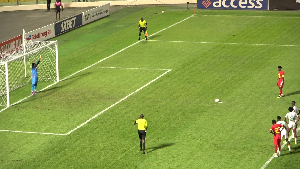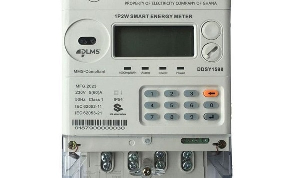The Coalition of NGOs in Water and Sanitation (CONIWAS) has called on government to as a matter of urgency reactivate the process towards establishing the National Sanitation Authority to effectively manage the sanitation problem in the country.
Mr Attah Arhin, the Vice Chairman of CONIWAS, said after 18 months of launching the National Sanitation Campaign, the cabinet memo on the establishment of the Authority had not received an approval even though some initial stakeholder engagements had been undertaken.
“The long silence and the inertia in moving the process forward have become a source of concern not only to us as a Civil Society Organisation but to all Ghanaians whose expectations of a cleaner and healthier Ghana has been dimmed,” he said.
The Vice Chairman said this at a press briefing in Accra organised by CONIWAS on Thursday to state its position on the performance of government in the quest to control sanitation problems in the country.
Mr Arhin noted that there was limited progress by the government in areas such as the establishment of a National Sanitation Fund, the establishment of Sanitation Budget Brigade to enforce sanitation bye-laws, and deployment of automatic sweepers for major streets.
There has also been insignificant or no progress in areas such as ensuring that Metropolitan, Municipal and District Assemblies (MMDA) enforce one-house-one-toilet policy and setting a day aside to hear sanitation offences by the Ministry of Sanitation and the Attorney General’s Department, he said.
Other areas of no or insignificant progress, according to CONIWAS, was the responsibility given to the Ministry of Monitoring and Evaluation to publish MMDA sanitation performances quarterly, appointment of sanitation ambassadors to support sensitisation, and resource waste management companies with modern and effective tools.
However, Mr Arhin commended the government on the development of three new material development sites for recovery and recycling, saying, there had been evidence of a Public-Private Partnership in respect of Zoompak, Jekora Waste to Compost Plant, PET and low-density films plant at Prampram.
He urged the government to replicate all the initiatives in other Regions.
To achieve the government’s vision of making Accra the cleanest city in Africa, Mr Arhin suggested that behaviour of the citizenry towards sanitation be addressed and the government should strengthen efforts to pursue recycling and implement policies and enforce bye-laws.
Government was also urged to put environmental health and sanitation at the centre of all development policies and strategies, make improved sanitation a key performance indicator for Ministers, MMDCEs and all relevant government appointees.
On issues of recycling and reuse of plastic waste, Mr Arhin said: “If we cannot accelerate recycling and reuse, and cannot manage our waste, then government should have the political will towards placing a ban on the production, importation and use of non-bio-degradable plastics at least until there are necessary structures in place to deal with the menace.”
He urged government to release the GHS200.00million additional funding promised by the President while delivering the 2018 State of the Nation Address for sanitation.
One step that could aid in the fight against poor sanitation in the country, he said, was for the government to strengthen the Ministry of Sanitation and Water Resources to take up the leadership and coordination role of sanitation services delivery through its Agencies.
“As a country, if the fundamentals of our sanitation continue to be weak, flooding, cholera and other preventable diseases will continue to expose us,” he said.
General News of Friday, 7 June 2019
Source: ghananewsagency.org

















